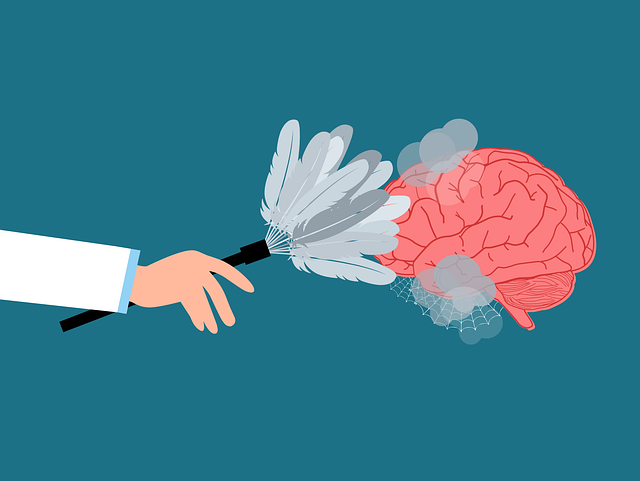Mental health advocacy in Littleton drives societal change by raising awareness, challenging stigma, and promoting understanding. Initiatives include policy reforms, increased funding for services like Littleton Drug Abuse-Substance Abuse Therapy, and improved training for healthcare professionals. The goal is a non-judgmental environment where individuals can access adequate care without hesitation, especially in addressing the link between substance abuse and mental health. Local advocacy groups use creative strategies and holistic approaches to break down stigma, promote early intervention, and empower individuals in their recovery journeys.
In today’s digital era, mental health advocacy initiatives are revolutionizing communities, especially in areas like Littleton grappling with high rates of drug abuse. This article delves into key aspects of this movement. We explore understanding mental health advocacy as a foundation for change and its impact on substance abuse therapy. Through community education and focused programs, we highlight efforts to combat Littleton’s drug abuse crisis. By empowering individuals through recovery support, these initiatives offer hope and healing for those affected by mental health issues and substance abuse.
- Understanding Mental Health Advocacy: A Foundation for Change
- The Impact of Substance Abuse on Mental Well-being: A Focus on Littleton
- Building Awareness: Educating Communities about Mental Health
- Therapy as a Tool: Treating Drug Abuse and Its Underlying Mental Health Issues
- Empowering Individuals: Recovery Support and Advocacy Programs in Littleton
Understanding Mental Health Advocacy: A Foundation for Change

Mental health advocacy initiatives play a pivotal role in fostering societal change and improving access to quality care. At its core, mental health advocacy involves raising awareness, challenging stigma, and promoting understanding to ensure individuals receive the support they need for their mental well-being. This includes efforts to destigmatize conditions like depression, anxiety, PTSD, and substance use disorders, such as those addressed by Littleton Drug Abuse-Substance Abuse Therapy.
Effective advocacy goes beyond mere awareness; it pushes for policy reforms, increased funding for mental health services, and better training for healthcare professionals. For instance, trauma support services, risk management planning for mental health professionals, and burnout prevention strategies for healthcare providers are all integral components of a comprehensive advocacy approach. By addressing these aspects, advocates work to create a more supportive environment where individuals can seek help without fear of judgment or inadequate care.
The Impact of Substance Abuse on Mental Well-being: A Focus on Littleton

In Littleton, the impact of substance abuse on mental well-being is a pressing concern. The interconnection between these two issues is profound; substance abuse often exacerbates existing mental health conditions and can lead to the development of new ones. According to recent studies, individuals suffering from anxiety disorders, depression, or other mental health challenges are at a higher risk of turning to drugs or alcohol as a coping mechanism. This self-medication approach, however, typically worsens their mental state over time, creating a vicious cycle that requires professional help.
Litttleton Drug Abuse-Substance Abuse Therapy programs play a crucial role in breaking this cycle. These initiatives focus on providing comprehensive treatment options, including individual therapy, group support, and medication management, to address both the addiction and underlying mental health issues. Mental Health Policy Analysis and Advocacy efforts have highlighted the need for increased access to such services, particularly in underserved communities. By promoting Anxiety Relief through evidence-based practices and encouraging Self-Care Routine Development for Better Mental Health, these initiatives strive to empower individuals to lead healthier, happier lives free from the grip of substance abuse.
Building Awareness: Educating Communities about Mental Health

Building awareness about mental health is a cornerstone of any successful advocacy initiative. Educating communities on issues like substance abuse therapy and its link to overall well-being is essential for breaking down stigma and promoting early intervention. Public Awareness Campaigns Development can play a pivotal role in this process, using creative strategies to reach diverse audiences. By integrating messages that highlight the prevalence and treatability of mental health conditions, such as Littleton Drug Abuse-Substance Abuse Therapy, we can foster an environment where individuals feel empowered to seek help without fear of judgment.
Mental Health Policy Analysis and Advocacy is another critical aspect. Examining existing policies and laws related to mental health care, and advocating for improvements, ensures that communities have access to comprehensive services. This includes not just treating symptoms but also addressing underlying social determinants of mental illness. Effective risk management planning for mental health professionals is also essential, as it enables practitioners to navigate complex ethical and clinical challenges while providing quality care.
Therapy as a Tool: Treating Drug Abuse and Its Underlying Mental Health Issues

Therapy serves as a powerful tool in addressing both drug abuse and its underlying mental health issues, as they are often interconnected. In Littleton, where Drug Abuse-Substance Abuse Therapy is accessible, individuals can receive comprehensive care tailored to their unique needs. This dual approach not only tackles the physical addiction but also delves into the psychological aspects, offering a holistic solution.
By combining evidence-based practices, therapists foster Depression Prevention and employ Empathy Building Strategies to create safe spaces for clients. Through therapy, individuals gain insights into their behaviors and triggers, learning effective coping mechanisms to manage underlying mental health conditions. This proactive approach not only aids in substance abuse recovery but also promotes Mental Health Awareness, encouraging a culture of support and understanding in Littleton and beyond.
Empowering Individuals: Recovery Support and Advocacy Programs in Littleton

In Littleton, a vibrant community dedicated to mental health advocacy is making strides through initiatives focused on empowering individuals in their recovery journeys. Recovery support programs here go beyond traditional therapy by offering holistic approaches that tackle not just substance abuse but also the underlying trauma that often accompanies it. These initiatives recognize that trauma support services are integral to fostering emotional intelligence and enabling long-term mental wellness.
The city’s advocacy groups actively engage in raising awareness about mental health issues, breaking down stigma, and promoting accessible substance abuse therapy. They also emphasize the importance of risk management planning for mental health professionals, ensuring that both practitioners and clients receive the support needed to navigate challenging situations safely and effectively. These comprehensive efforts reflect a commitment to creating an environment where individuals can heal, thrive, and contribute to their communities.
Mental health advocacy plays a pivotal role in fostering communities that prioritize well-being. By understanding the intricate link between mental health and substance abuse, as highlighted in our discussion of Littleton’s initiatives, we can develop effective strategies to combat these issues. Educating communities about mental health awareness is essential, as it empowers individuals to recognize and support one another. The integration of therapy as a treatment method for both drug abuse and underlying mental health problems demonstrates a comprehensive approach to recovery. Ultimately, empowering individuals through advocacy programs ensures sustained healing and positive change in Littleton and beyond, addressing the multifaceted challenges associated with substance abuse.











